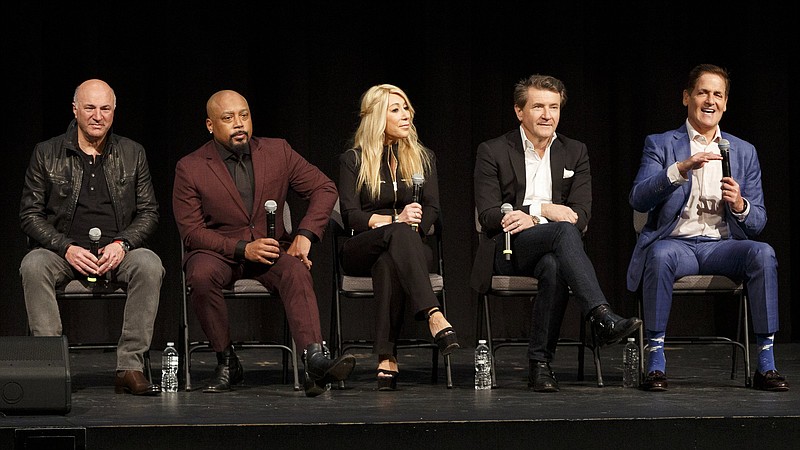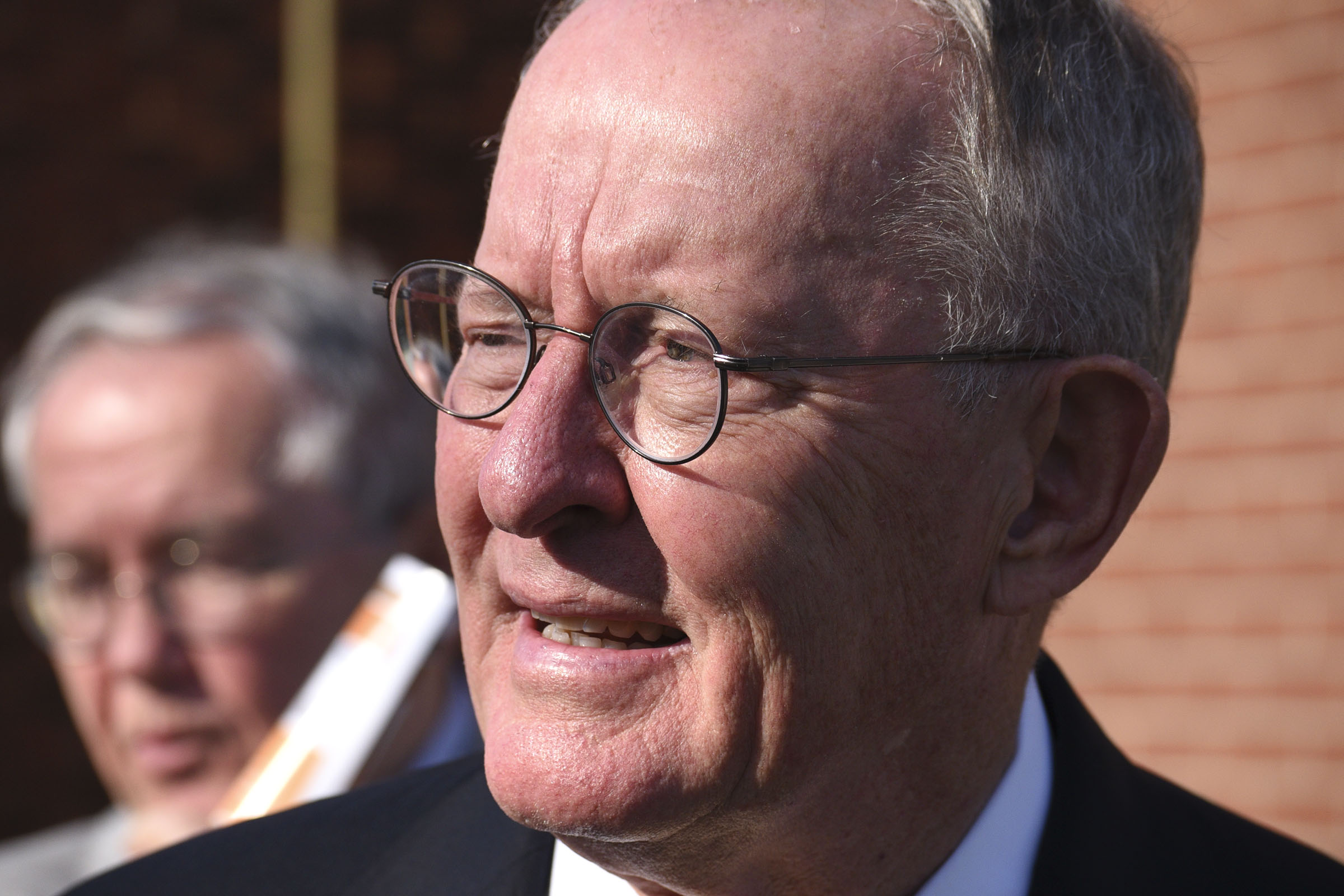NASHVILLE - Borrowing a concept from reality TV, Republican U.S. Sens. Lamar Alexander of Tennessee and Roy Blunt of Missouri are calling for a $1 billion competitive "shark tank" to vastly accelerate production for tens of millions of COVID-19 tests they say are key to reopening the nation as well as schools in August and September.
In their opinion piece, Alexander, chairman of the Senate Health Committee, and Blunt, chairman of a health-related Senate Appropriations subcommittee, say new technologies are necessary for better and more widespread testing during the pandemic.
They laid out a scenario of government overseeing companies battling in a competitive environment that could appeal to President Donald Trump, who himself is a former reality television star.
"There is no safe path forward to combat the novel coronavirus without adequate testing," the senators wrote in Tuesday's Washington Post. "To contain COVID-19 and persuade Americans to leave their homes and return to work and school, the United States will need tens of millions of diagnostic tests."
Governors in several Republican states, including Tennessee Gov. Bill Lee and Georgia Gov. Brian Kemp, announced Monday they are moving to lift current stay-at-home restrictions, with Kemp allowing businesses to reopen later this week while Lee said he won't extend his executive stay-home order, which expires April 30.
Testing to know the extent of the coronavirus is expected to be critical. With the head of the White House's coronavirus task force saying there are now 1 million tests available nationally on a weekly basis with as many as 2.5 million projected by mid-June, Alexander and Blunt argue that while "impressive" it is "not nearly enough" in terms of what is needed.
"We need tens of millions more to really get a handle on how far and wide this disease has spread," the senators said. "This demand will only grow as the country goes back to work and some 100,000 public schools and more than 5,000 colleges reopen, we hope, in August," the senators say.
Alexander and Blunt said they have consulted with experts across government and the private sector on whether they can say the U.S. is now on track to produce what is required, but "we have yet to find anyone to do so."
But those conversations do point to a "possible solution," the senators wrote.
"We propose a competitive 'shark tank' - much like the reality-TV show about entrepreneurs, but this time utilizing the capacities of government itself, in coordination with the private sector - to pull out all the stops and create new technologies designed to produce tens of millions of diagnostic tests by August," the senators said.
If "there's a bold idea out there that will work, we need to make sure the funding is available to get it approved and in the hands of health-care providers quickly," the senators argue. "We also should improve serologic tests to determine whether someone already has had the disease and has now created the necessary immunity to hopefully fight off the disease in the future."
Alexander and Blunt cite areas where to find needed technlogy, one being the National Institutes of Health where two dozen early-stage testing concepts are already under development. The second agency that should be involved is the Biomedical Advanced Research and Development Authority (BARDA), a division of the U.S. Department of Health and Human Services.
"Specifically," the senators wrote, "we propose $1 billion to launch this shark tank for testing. Funding would be provided to the NIH to work with BARDA to underwrite any innovative idea with a chance to succeed. Importantly, industry experts and partners would be brought in to evaluate the potential technology, its effectiveness and its scalability.
"This is the time for both government and its industry partners to step up and pull out all the stops," Alexander and Blunt added. "American ingenuity will succeed, but like any enterprise, it needs start-up financing to help it thrive."
Contact Andy Sher at asher@timesfreepress.com. Follow him on Twitter @AndySher1.

